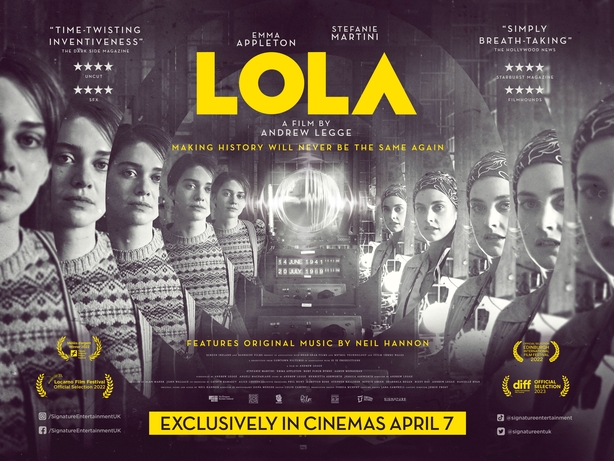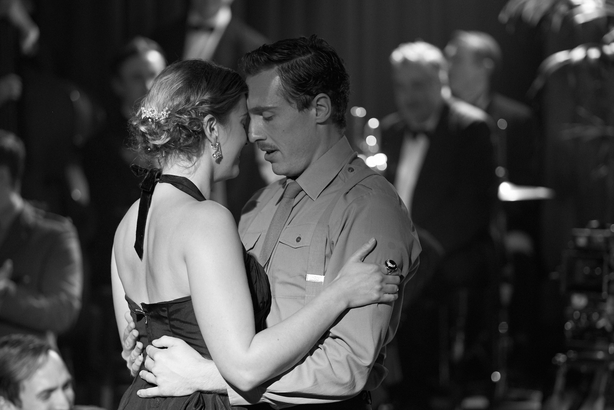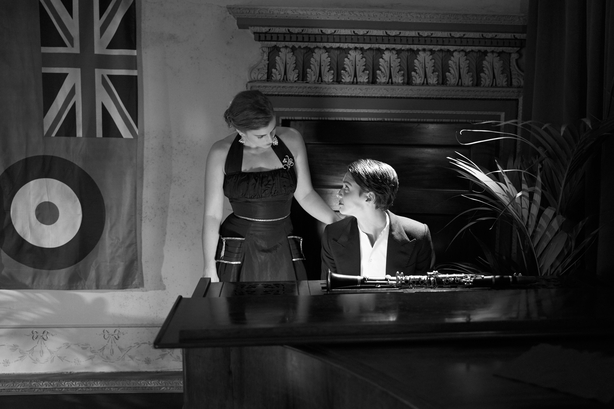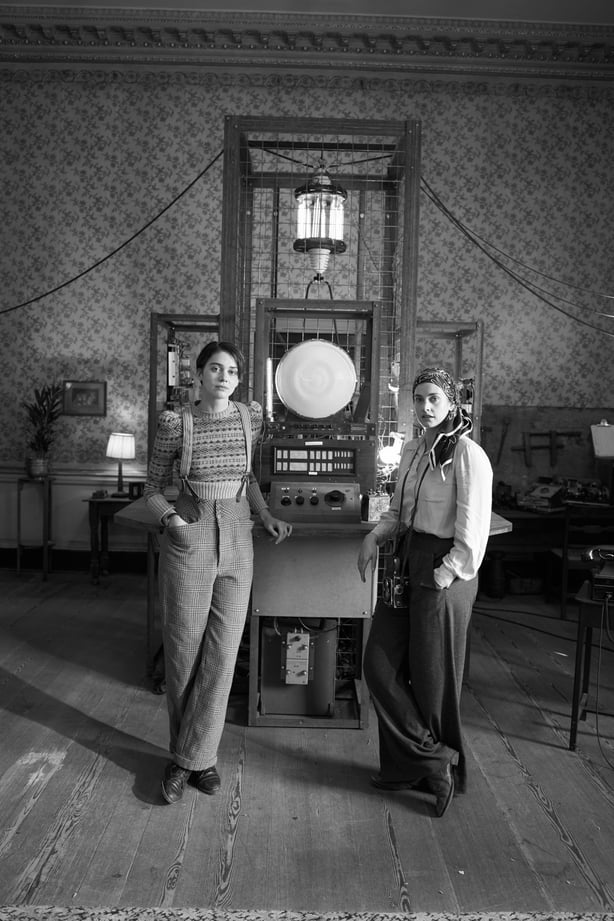Irish director Andrew Legge's elegant and inventive debut feature subverts the found footage genre to play around with the timeline of twentieth century history and pose some tantalising metaphysical and philosophical questions.
It is a triumph of low budget filmmaking that cleverly turns its lack of resources into an advantage while telling a gripping human story.
A grainy title card informs us that a strange cache of film reels from the 1940s have been found in an abandoned old country house on the southern coast of England. These are the home movies of unconventional sisters Thomasina and Martha Hanbury (Emma Appleton and Stefanie Martini), who have been left to their own devices since they were children following the death of their parents.

Among their own devices is their extraordinary machine, Lola. Welded and wired together from old radio transistors and lengths of metal, it is named after their late mother, and can intercept television and radio broadcasts from the future on its glowing convex screen. Naturally, the first images they behold on the strange contraption is tv performance of Space Oddity by David Bowie from the early seventies.
At first, they use Lola to enrich themselves by betting on the next day’s horse races and swing to the sixties a generation early but as Hitler’s armies conquer Europe and set their fangs on Britain’s coastline, the sisters relent to pressure from British military intelligence and use their invention to help the war effort.

Their ability to gaze into the future has a devastating impact on Hitler’s plans but while Fortress Britain’s triumphs, playing around with the fabric of time can have devastating effects. In LOLA, the butterfly effect works in reverse.
It also puts a strain on the relationship between the steely, Mitford-like Thomasina and hippy manqué Martha as they grapple with the enormity of their power.

This is one of the most distinctive and stylish looking films you’ll see this year, full of retro futurism, recalling the films of Fritz Lang and maybe even Michael Anderson’s 1956 version of George Orwell’s 1984. Fond memories of BBC sitcom Goodnight Sweetheart and Back To The Future also come to mind - "This is one of our favourites. You won’t be hearing it for some time," Martha tells a room full of celebrating army officers before blasting into a piano led version of The Kinks’ You Really Got Me. Well, the machine is called Lola.

With a quirky soundtrack from Neil Hannon of The Divine Comedy, Legge has shot his film on grainy black and white 16mm, and the guerrilla filmmaking style makes for plenty of surreal images but there is also a high degree of realism as he artfully mixes shaky handheld Bolex camera footage with the archive Pathé newsreel of the era.
Legge has said that Lola is a natural progression from his previous short films - The Unusual Inventions Of Henry Cavendish, The Girl With The Mechanical Maiden, and The Chronoscope, all of which explored the consequences of human interaction with technology.
LOLA is a gripping and uniquely strange alternative history tale. It’s a haunting out of body experience.
Alan Corr @CorrAlan2
Lola is in selected cinemas from 7 April.













